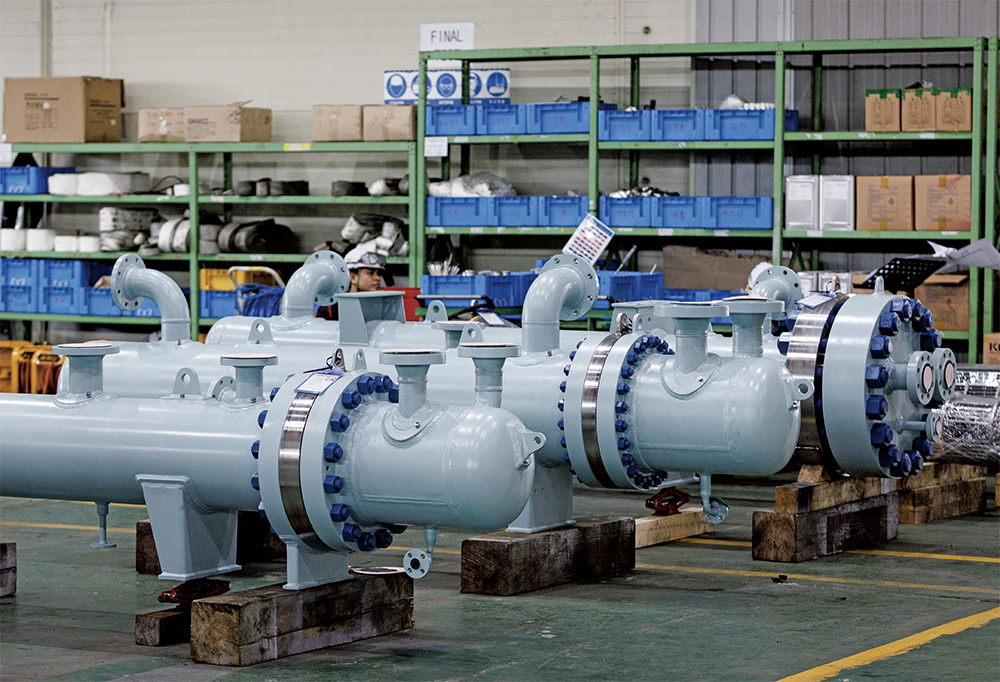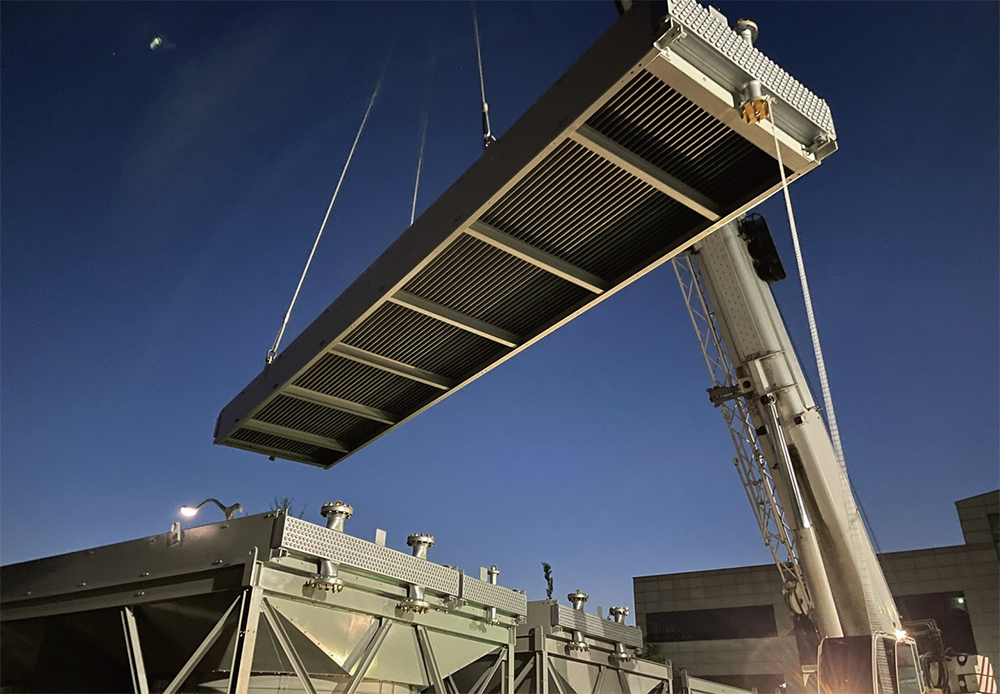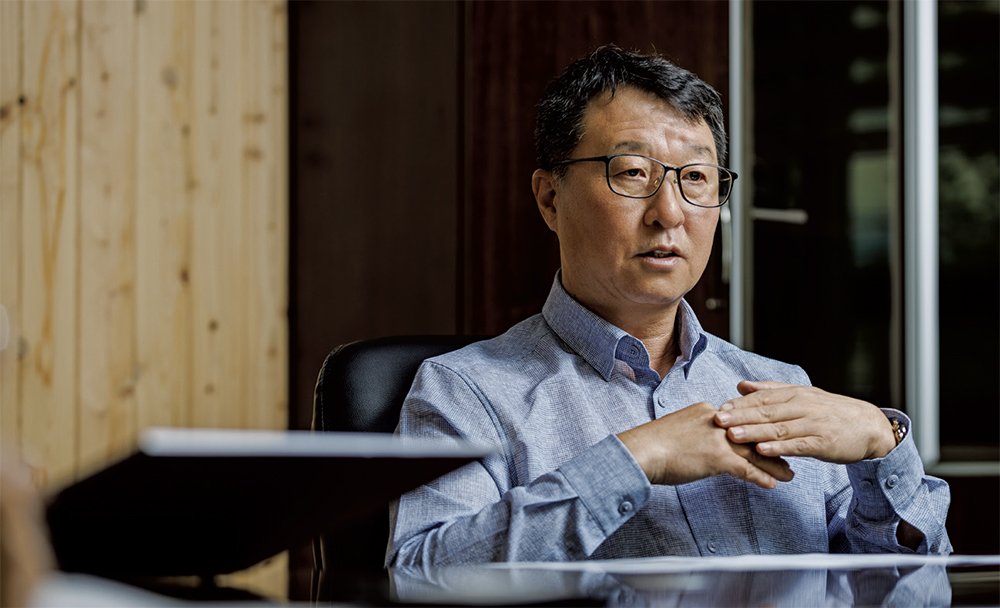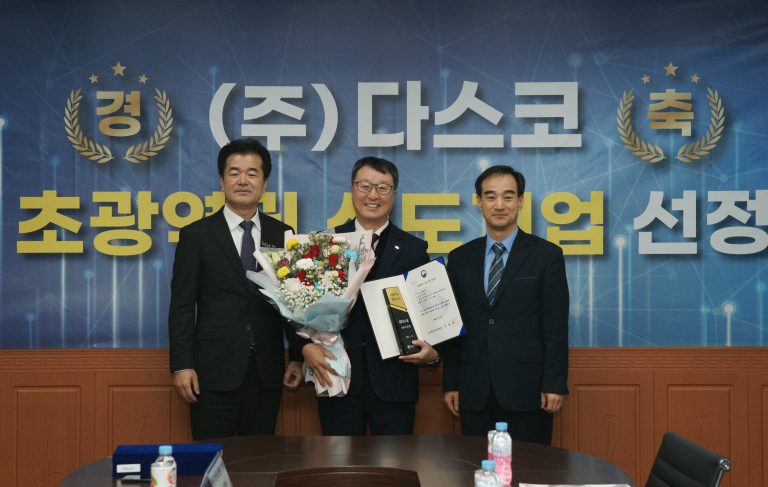Because domestic shipbuilders have won large-scale orders, a good wind is blowing in the downstream industry of equipment and materials. Since its inception in 1995, Busan-based DASCO has promoted the local production of critical equipment that previously relied on foreign technology. DASCO, which has established itself as a heat exchanger industry leader, is helping to boost national industrial competitiveness by developing eco-friendly, high-efficiency equipment with high added value.

New types, such as DASCO compressor coolers, are smaller and more compact in size, able to handle high pressure and achieve great efficiency.
A firm that specializes in heat exchangers with tenacity.
When two items of different temperatures come into touch, heat transfers from the one with a higher temperature to the object with a lower temperature, as I learned in science class as a child. A heat exchanger is a device that uses this principle to efficiently move heat energy.
As the necessity of energy efficiency grows in response to recent harsher environmental requirements, the heat exchanger field, which is widely utilized in heating, air conditioning, power generation, and waste heat recovery, is being changed into an eco-friendly equipment. One after the other, technologies are being developed to not only recover heat released by mechanical systems, but also to reduce various pollutants and recycle them as new energy sources.
DASCO (CEO Geun-young Lee) is a tenacious corporation based in Busan that has been digging a well in the heat exchanger area for nearly 30 years. Starting with marine air conditioning equipment, we then developed crucial parts for industrial heat exchangers, and in recognition of our technological prowess, we extended into the marine and land plant sectors, setting the groundwork for future expansion. It was especially effective to aggressively target niche markets by creating and selling numerous sorts of equipment such as coolers, heaters, and buffers installed on air compressors.
DASCO won the $5 million export tower prize last year and was named one of the Ministry of SMEs and Startups’ ‘100 Regional Innovation Leading Companies’ based on this business diversification approach. This year, we are preparing for our second leap ahead by being recognized as the ‘Global Small Giant Company 1000+ Project’.
Continuous research and development to target a niche
“Because of the nature of the shipbuilding industry’s repeated booms and busts, we decided that a new industry that could act as a buffer was required. As a result, we began diversifying our operations into plant equipment in 2006. Continuous technological development has been the driving force behind our stable growth to this day.”
While other companies were struggling in the midst of the global financial crisis, DASCO took a riskier route. CEO Lee began inventing new technologies based on the technical abilities he had acquired over a dozen years of developing heat exchangers. He formed his own research center in 2008, vigorously recruited R&D professionals, and made no attempt to make foreseen investments.
However, any equipment entering the factory had to go through a rigorous inspection because failure or malfunction may cause considerable harm. There were numerous challenges in establishing a market presence because it required not only certification for the delivery of equipment but also existing delivery performance.
People around us voiced anxiety that we would be limited as a small and medium-sized equipment company, but this proved incorrect. With high quality, price competitiveness, and after-sales service skills, DASCO began to demonstrate its potential. We gradually raised our market share despite high entry hurdles by consistently knocking on foreign markets with superior basic design capabilities, fin-tube expansion technology, and specific production know-how.
DASCO began to differentiate itself in the business by partnering not only with prominent domestic companies, but also with global equipment and equipment companies such as Atlas, Air Liquide, and Kobe Steel. Despite the shipbuilding industry’s downturn, the company has experienced tremendous growth, with an average annual sales growth rate of 20% since 2017.

Heat exchanger items used in large-scale facilities such as oil refineries and gas plants, power plants, and semiconductors.
A second step forward with highly efficient, environmentally friendly equipment
To create future business, DASCO, which has established itself as a company specializing in heat exchangers over land and sea, has begun creating eco-friendly, high-efficiency maritime equipment that is monopolized by some overseas corporations. We are involved in national programs, focused on R&D, and readjusting the percentage of shipbuilding equipment.
“By collaborating with Hanwha Power Systems, Korea Shipbuilding & Marine Engineering, and Korea Shipbuilding & Marine Engineering Research Institute last year, we were able to localize key equipment for liquefied natural gas (LNG) carriers. We want to create high added value based on technology and move forward as a world-class company.”
According to CEO Lee, DASCO accomplished a cryogenic demonstration test at -140°C for an eco-friendly LNG carrier boil-off gas (BOG) compressor as part of the Ministry of Trade, Industry, and Energy’s ‘Shipbuilding and Marine Industry Core Technology Development Project.’ In addition to being the first domestically built compressor in a country that had previously relied exclusively on imported compressors, the company has shown both the compressor and the surrounding equipment, such as a vaporizer, and is preparing for commercialization. We are excited about the future of LNG carriers because Korea receives roughly 80% of the world’s orders.
Furthermore, in order to anticipate future energy conversion demands, DASCO intends to enter the ESS (Energy Storage System) industry using its ultra-low temperature, ultra-high pressure, compact, and extremely efficient heat exchange technology. We are planning to build and manufacture a 1MW prototype this year in partnership with the Korea Advanced Institute of Science and Technology (KAIST), followed by a 5MW commercial product next year.
“Throughout this period, problems and opportunities coexisted. We were able to stand up like a roly-poly without tumbling down thanks to the efforts of our leaders and staff who put their bodies on the line whenever circumstances were tough. Following the LNG carrier, we will be successful in localizing environmentally friendly equipment that uses liquefied carbon dioxide and ammonia to develop a new growth engine.”
CEO Lee also stated that the newly built third facility will have large-scale research facilities as well as automation facilities for demonstrating prototypes. DASCO is sailing on a favorable wind, with strategies and a spirit of challenge that are one step ahead of the competition.

“We must secure technological superiority through preemptive investment.”
Energy-saving and ecologically friendly solutions are in high demand throughout industries. As a result, planning ahead of time is critical. DASCO is conducting verification tests at its research institute to secure the technology that enables design in a slim and compact size, and is constantly striving to gain a competitive advantage in manufacturing through optimal design that reflects the test results, in addition to its unique technology. Because the worldwide market is so vast, I believe the potential for expansion is still boundless. However, as the domestic manufacturing industry’s competitiveness deteriorates in comparison to latecomers such as China and India, it is more important than ever to focus on improving productivity and efficiency at the manufacturing site, as well as building trust through smooth communication with global customers. It’s critical.
Source: https://nara.kosmes.or.kr/newshome/mtnmain.phpmtnkey=articleview&mkey=scatelist&mkey2=44&aid=7462




